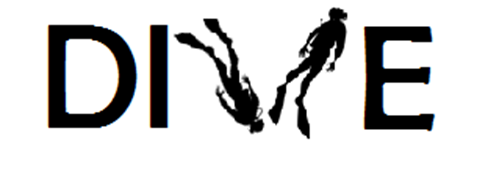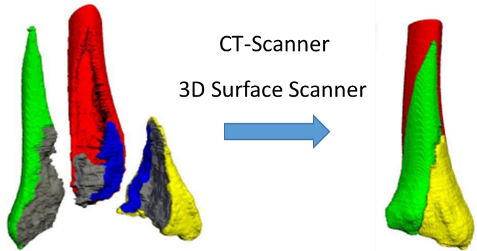Taphonomy
| Presentation of the unit | Services of the unit |
Research
The SHIFT collaborators are leading research works in anthropology / archaeology, genetics (environmental, vegetal and animal) and entomology. However, they are also active in other domains such as toxicology, imaging, disaster victim identification, etc. with the support of granted partnerships.
 (2020-2023)
(2020-2023)
Diagnosis and Interpretation of Vascular Embolism gas composition in Scuba Diving
(FNS : 99 400 CHF, PI : Dr Vincent Varlet)
This project aims to validate the intracardiac gaseous CO2 concentration as a reliable indicator to support the fatal scenario hypothesized from diving profiles examinations and autopsy findings. A working network has been developed among several Mediterranean forensic centers (France, Spain, Switzerland and Italy) in order to sample intracadaveric gases in case of scuba diving fatality. Sampling is planned to be done under laser guidance if CT-Scanner access is possible. Gaseous compositions are planned to be analysed immediately or shortly after sampling by portable gas chromatography-thermal conductivity detection (GC-TCD). The forensic diagnoses improvements in case of scuba diving fatalities are not only essential for scuba diving fatality management but also very important to better understand the physiological mechanisms implied in fatal gas embolism in general, also in clinical medicine. It will be helpful to prepare and improve resuscitation procedures. Gas physiology and methodological protocols are also of strong interest for baromedical medicine. Numerous treatments implied baromedical approaches such as oxygen therapies, carbon monoxide poisoning, enhancement of healing, skin grafts, ulcers and thermal burns, etc.
 (2020-2024)
(2020-2024)
Virtual Re-association of Fragmented Human Remains (FHR)
Management of fragmented human remains - Improving the protocols for Disaster Victim Identification (PhD direction : Pre Silke Grabherr, PhD supervisors : Dre Negahnaz Moghaddam and Dr Vincent Varlet, PhD - UNIGE: Lise Malfroy Camine)
The research aims to build a global protocol for a better management of fragmented human remains, especially in DVI situation (Disaster Victim Identification). Innovative technologies for segmentation and virtual re-association of fitting fragments will enhance their identification, and reduce DNA analysis and time needed for their anthropological analysis. This pluridisciplinary project is supported by DVI Switzerland, INTERPOL and ICRC, and implies scientific collaboration with the Swiss Federal Institute of Technology (EPFL), Aix-Marseille University (France) and Materialise NV.
![]() (2020-2022)
(2020-2022)
Answering the Impact of the Covid - 19 Pandemic on the Funeral Sector and on Bereaved Families (France, Switzerland, Italy) (Scientific Committee expert : Dr Vincent Varlet)
The Covid-19 pandemic generates an unprecedented sanitary and social crisis. Numerous individuals are currently mobilized to respond to this crisis, among them actors of the funerary realm. This crisis is unprecedented, not only in terms of the foreseeable number of deaths, but first and foremost in terms of its repercussions on the overall number of deaths. It arises in a globalized world in which public health issues are problematized as risks and, at this time, handled through confinement measures. By contrast with a catastrophe or an epidemic in which both localization and timeline are more clearly readable, each death in Switzerland – as well as in any other State that is applying such measures – is concerned, not only those due to a specific event, in this case a virus. It is thus necessary to assemble available knowledge and to act as swiftly as possible to identify what differs and what is new in today’s situation, in order to enable the different actors – public health authorities, professionals engaged in various sectors, volunteers – to rapidly seek answers and find alternatives to alleviate the difficulties, problems and questions they are inevitably facing.
The Co-Funéraire project is founded upon the following hypothesis: according to the scope and length of this sanitary crisis, the consequences in relation with funerary matters will necessitate – and necessitate already – a collective and co constructed answer that acknowledges and secures the professional interventions; the bodies’ treatment in relation with the sanitary and social recommendations; the funerary rituals at the time of death and during the following months. Accordingly, the project is experimental and original, on at least two aspects: first, it collects first - hand data and questions them in real time while the crisis is occurring, notably with regard to ethical issues; second, it compiles new information based on concrete experiences that might help public health authorities and stakeholders to apprehend social issues and figure out solutions during a pandemic, especially for the funerary sector and bereaved families.
(ANR France, FNS Suisse) : Full description
![]() (2022-2024)
(2022-2024)
Norms and funerary practices during sanitary crisis: the Covid-19 Pandemic Management in France, Switzerland, Italy (Mission de Recherche Droit et justice: 40 000 EUR, Co-PI / Member of Research team : Dr Vincent Varlet)

